-
 Art of Wellness Acupuncture & Traditional Chinese Medicine (TCM)11704 Wilshire Blvd, Suite 295, Los Angeles, CA, 90025
Art of Wellness Acupuncture & Traditional Chinese Medicine (TCM)11704 Wilshire Blvd, Suite 295, Los Angeles, CA, 90025
myartofwellness@gmail.com310-451-5522 Office Hours
MonClosedTue7:30 am --4 pmWed7:30 am --4 pmThu7:30 am -- 4 pmFri7:30 am -- 4 pmSat7:30 am -- 4 pmSunClosedOur office opens from Tuesdays to Saturdays 7:30 am to 4 pm, will be closed on Memorial day, Independent day, Labor day, Thanksgiving day, Christmas and New year.
-
Recent Posts
- Chinese New Year 2026: Year of the Horse
- Acupuncture and TCM Treatment for Perimenopause Symptoms
- How to Treat Insulin Resistance With Acupuncture and TCM
- How to Treat Metabolic Syndrome With Acupuncture and TCM
- How to Treat Syncope With Acupuncture and TCM
- How to Treat Thoracic Outlet Syndrome With Acupuncture and TCM
- How to Treat Dupuytren’s Contracture With Acupuncture and TCM
- How to Treat Nutcracker Syndrome With Acupuncture and TCM
- How to Treat Rosacea With Acupuncture and TCM
- How to Treat Perioral Dermatitis With Acupuncture and TCM
- Lymphatic Drainage With Acupuncture and TCM
- How to Treat Turf Toe With Acupuncture
- How to Treat Nerve Pain With Acupuncture and TCM
- How to Treat Watery Eyes With Acupuncture and TCM
- How to Treat Ovarian Cysts With Acupuncture and TCM
- How to Treat Dystonia With Acupuncture and TCM
- Sign up to receive news and updates and get my free report:“The Top 10 Reasons to Try Acupuncture”

November 2025 M T W T F S S 1 2 3 4 5 6 7 8 9 10 11 12 13 14 15 16 17 18 19 20 21 22 23 24 25 26 27 28 29 30
Neurological Conditions
How to Treat ALS With Acupuncture and TCM
By Qineng Tan, L.Ac., Ph.D. & Xiaomei Cai, L.Ac., Ph.D.

Muscle fatigue, muscle twitching, muscle cramps, slurred speech? These are some of the early signs of ALS, Amyotrophic lateral sclerosis, which is also commonly known as Lou Gehrig’s disease (or Lou Gherig’s disease). ALS is a rare progressive neurological disorder. Acupuncture and TCM can help to manage the symptoms of ALS and slow the progress of this degenerative motor neuron disease.
ALS is a neurological disease that affects the motor neurons (or nerve cells) in the brain and spinal cord that control voluntary movements. Over time, people with ALS develop muscular problems that make it hard for them to walk, talk, eat, drive, and perform all kinds of daily activities. As more neurons break down, the muscles can begin to waste away. ALS can also lead to speech problems and changes in personality. Some patients with ALS will develop respiratory problems that make it very difficult to breathe.
In the early stage of ALS, people may have muscle spasms, fatigue, and only some of the body is affected. As the disease progresses to the middle stage, they may begin to have more muscle twitches (fasciculations) or contractures, which is when the joints become painfully stiff and rigid. This can eventually lead to paralysis, and a person having to use a wheelchair.
Eventually, ALS can affect breathing and eating to the point that a person is not getting sufficient oxygen or nutrition, which can cause headaches and an inability to concentrate.
Unfortunately, ALS often leads to other serious illnesses that are fatal. People with ALS may develop severe respiratory problems or pneumonia. Some patients may have cardiac arrhythmias, or pulmonary embolism. Medical treatments for ALS can, in some cases, help slow down the degeneration of the nerve cells and prolong life.
Acupuncture and TCM offer an effective adjunct to standard treatment for ALS that may help to improve motor ability, speech, and breathing. Acupuncture has been used successfully to manage ALS and many other neurodegenerative diseases, including: essential tremor, Alzheimer’s disease, Parkinson’s disease, seizures, Bell’s palsy, multiple sclerosis (MS), and recovery from stroke.
What Causes ALS?
While only 5-10% of people with ALS seem to have inherited it, genetics are considered likely to be a factor. As with other conditions, like CF, one parent may not show any signs of the disease, but may have the genetic mutation that causes ALS in their DNA. Having a genetic mutation that affects the way a protein functions or doesn’t function may be what causes cell degeneration like that of ALS.
Medical science has not determined the exact cause of ALS, but it may also have to do with some environmental or behavioral factors. For example, because rates of ALS are higher amongst athletes and members of the military, it has been posited that there may be some correlation to high levels of exertion and the breakdown of motor neurons.
Top 10 Symptoms of ALS
Signs of ALS may be slow to develop, and are sometimes misinterpreted as symptoms of other neurological disorders, like MS. Both ALS and MS can start off with seemingly minor symptoms like muscle twitching, or weakness in the legs. But over time, ALS will begin affect speech and swallowing, while MS is more likely to cause numbness or tingling in the hands and feet, and vision problems. MS symptoms may come and go, while ALS is usually marked by a steady decline as the disease progresses. Muscular dystrophy can also have similar symptoms.
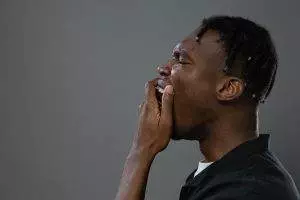
The most common symptoms of Lou Gehrig’s disease/ALS include:
- Having trouble grasping items or lifting things
- Muscle weakness, muscle cramps, muscle twitches, charley horse
- Arms and legs become fatigued easily, trouble walking, trip easily
- Voice sounds higher, more nasal when speaking
- Slurred speech
- Difficulty chewing and swallowing, choking on liquids
- Eyes or mouth don’t close all the way
- Bouts of uncontrolled laughing, crying, or yawning
- Easily frustrated or confused
- Feelings of anxiety or suspicion
As ALS progresses, secondary problems like malnutrition due to difficulty eating, trouble breathing, or emotional symptoms may become more prominent. ALS may also lead to problems with incontinence and control of the bowels.
Diagnosis and Treatment for ALS
ALS is not considered an autoimmune disease, although recent research suggests that some people with ALS are more prone to developing autoimmune disorders because they have a particular genetic mutation that affects the production of virus-sensing immune cells. As with autoimmune disorders like lupus, Addison’s disease, fibromyalgia, ME/CFS (chronic fatigue syndrome, Myasthenia Gravis, and rheumatoid arthritis (RA), it can be difficult to get a diagnosis for ALS.
If ALS is suspected, a doctor will first do an examination looking at motor and nerve function. Next, they will do an EMG, a test to check the electrical signals between the nervous system and the muscles. An MRI may show whether there is damage to the spinal cord. Blood tests can rule out other diseases that cause similar symptoms, such as muscular dystrophy, or myasthenia gravis.
The drug most often used to treat ALS is riluzole, which acts on the brain chemicals that affect nervous system signals. Specifically, riluzole prevents excess production of glutamate, which seems to occur in some people with ALS, and is believed to contribute to dysfunction in the brain and spinal cord. Riluzole seems to have some protective capabilities, staving off the progression of ALS symptoms and further degeneration of nerve cells. Riluzole is not very effective for everyone with ALS, though, and it can cause side effects like dizziness and gastrointestinal problems.
Acupuncture and TCM offer a safe alternative or integrative treatment plan for ALS which can help to reduce symptoms like muscle twitches, muscle weakness, and trouble swallowing. TCM treatments can also reduce the side effects of medications for ALS like riluzole, alleviating digestive symptoms and dizziness. Acupuncture works holistically to address the stress and emotional impact of having a chronic illness, helping to relieve depression and anxiety.
Acupuncture for ALS

One of the foundational concepts of TCM is the idea that both blood and Qi (life force energy) flow through the body along channels. In Western medicine, these channels are recognized as the nerves of the nervous system, and the blood vessels of the cardiovascular system. In the TCM system of medicine, blood flow and energy flow can be stimulated, and fine-tuned, by acupuncture treatment.
Acupuncture has been shown to help get the electrical impulses that carry messages from the brain to the spinal cord, the nerves, and the muscles working again when they are dysfunctioning. In this way, TCM and acupuncture are understood to be helpful for the treatment of many neurological disorders and progressive degenerative diseases. Neurological problems can be caused by blockage due to varying factors, but the framework of TCM allows us to treat all kinds of blockages with acupuncture.
With acupuncture and herbs, we can also work against muscle atrophy by nourishing the spleen. TCM works to help patients with ALS on many levels.
One case study reported a reduction in ALS symptoms like spasms and muscle cramps, fatigue, low back pain, and dry eyes.
Another case study of a patient with ALS showed distinct improvements in speech, mobility, and breathing ability.
A case study of a patient who, after being treated with riluzole for a period of time, began taking Chinese herbs, showed that she was able to manage her ALS, with less muscle twitching and better ability to tolerate swallowing without choking, over a 12 year period.
Studies have also shown that acupuncture treatment for ALS can help reduce inflammation in the respiratory tract and help improve breathing capability.
Acupuncture Near Me for ALS/Lou Gehrig’s Disease, Los Angeles Area
ALS is a serious chronic illness that can quickly rob people of their mobility, self-reliance, and quality of life. While there is no cure for ALS, it is possible to slow down the progression of the disease and manage symptoms. The doctors at Art of Wellness have over 35 years of experience helping patients manage degenerative neurological conditions so they can live their best possible life.
*This article is for education from the perspective of Traditional Chinese Medicine only. The education provided by this article is not approved by FDA to diagnose, prevent, treat and cure human diseases. It should not stop you from consulting with your physician for your medical conditions. Traditional Chinese Medicine is based on Qi, which is an invisible force that usually cannot be observed by modern science. Because science focuses on testing ideas about the natural world with evidence obtained through observation, these aspects of acupuncture can’t be studied by science. Therefore acupuncture and Chinese herbs are often not supported by double-blind, randomized trials, and they are considered alternative medicine therapies in the United States.
How to Treat Essential Tremor With Acupuncture and TCM
By Qineng Tan, L.Ac, Ph.D. & Xiaomei Cai, L.Ac., Ph.D.
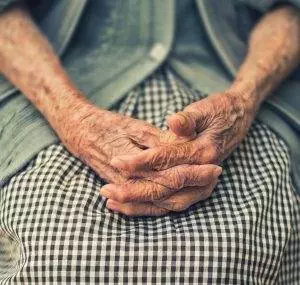
Shaking hands, body shaking for no reason, head shaking, feel wobbly when you’re walking, maybe your voice quivers when you speak? These could be signs of Essential Tremor (ET). Essential tremor is a neurological condition, often mistaken for Parkinson’s disease, which causes rhythmic shaking of parts of the body, especially the hands. Acupuncture and TCM are an effective way to treat symptoms of essential tremor.
Essential Tremor (ET), also called “kinetic tremor” or “benign essential tremor,” is a chronic nervous system disorder that causes hand tremors, trembling hands, head shaking, body tremors in the arms or legs, and can also affect the voice. The hand shaking most often happens when you try to perform some simple, yet specific task that requires coordinated movements or using tools, such as shaving, writing, or pouring liquid into a glass.
Essential tremor is the most common type of movement disorder, affecting about 4% of older adults, although it can happen at any age. The causes and progression of ET are not fully understood by medical science.
Tremors are categorized into two main types of tremors: resting or active. A resting tremor is when the body shakes even at rest. Active tremors are when there is shaking when a person is attempting to make voluntary movements. Essential tremor is a type of active tremor.
“Postural tremor” refers to an active tremor that occurs when a person is trying to maintain a position, like standing with the arms outstretched, and cannot do it without shaking. An “internal tremor” is a person’s feeling that a quivering or shaking sensation is taking place inside their body, that cannot be seen by others.
Essential tremor is often misdiagnosed as Parkinson’s disease, but, in fact, essential tremor is much more common than Parkinson’s (20 times more common). Like Parkinson’s, essential tremor causes hand shaking, but ET is different in that symptoms usually occur when you’re actively trying to do something, whereas Parkinson’s tremor occurs even when your limbs are at rest. Parkinson’s also typically involves non-motor symptoms as well as motor symptoms.
Other conditions can also cause hand tremors. Vascular parkinsonism, a neurological disorder that is the result of small strokes, causes blockage of blood flow in the brain. Both Parkinson’s and vascular parkinsonism can cause a distinct type of tremor that involves the thumb and fingers brushing together slowly, sometimes called a “pill-rolling tremor.” Asterixis is another kind of motor control disorder that causes muscles to jerk, resulting in a characteristic hand-flapping gesture, sometimes referred to as “liver flap.”
There are many other conditions that can also cause tremors, including: hyperthyroidism, multiple sclerosis (MS), stroke, liver or kidney disease, and alcohol addiction. Anxiety or panic attacks can also cause a temporary tremor or shakiness.
Essential tremor seems to run in families sometimes, but many people begin to experience tremors for no apparent reason. It is theorized that ET may be caused by something genetic, or it may be caused by neurodegeneration–the gradual degradation and death of cells in the brain.
Acupuncture, combined with other TCM modalities such as moxibustion and herbs, is a good method for reducing hand tremors and other symptoms of essential tremor, as it has been demonstrated to have positive effects on the generation of cells in the brain and nervous system, as well as reducing stress and anxiety.
Top 5 Essential Tremor Symptoms
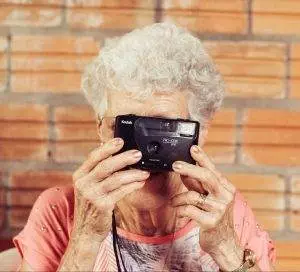
Very mild symptoms of essential tremor, such as having trouble threading a needle, often begin to show up when a person is in their 40s. Then, as time goes on, the symptoms of ET become more obvious:
- Tremor, especially in hands, that is most noticeable when you’re trying to do something
- Head nodding that you can’t control
- Shaking on one side of the body more than the other
- Voice quivers or voice is shaky when you speak
- Tremor gets worse over the years
Some medications (amphetamines, corticosteroids, or asthma medications) or stimulants like caffeine may make the tremors more noticeable. Some people find that the tremor lessens when they drink a moderate amount of wine or other alcohol. Stress, strong emotions, too much exertion, low blood sugar, or being dehydrated can make the tremor more pronounced.
Essential Tremor Treatment
There is no specific test that shows whether a person has essential tremor. Diagnosis is based on observation of symptoms, and the use of testing to rule out other disorders, such as thyroid disease or Parkinson’s.
Medications are used to treat tremors with varying levels of success. Propranolol and Atenolol are beta-blockers that can be helpful for some people with ET. Primidone or Topamax are anti-seizure (anti-epileptic) drugs that can also be prescribed to help relieve shaking. In many cases, these medications are not very helpful for relieving the tremors. Doctors may try anti-anxiety medications like Valium, Ativan, or Klonopin. Botox injections have also been tried as a medical treatment for essential tremor.
In some cases surgery to remove parts of the thalamus has helped stop severe tremors, but there is a high risk with this type of brain surgery. Nowadays, when drugs do not seem to provide relief from tremors, people may be referred for a thalamic deep brain stimulation therapy, in which electrodes send an electrical impulse to the brain to interrupt the faulty signals leading to involuntary shaking.
Acupuncture treatment is another way to stimulate brain activity, having a positive effect on neurotransmitters in the brain and reestablishing connections throughout the nervous system.
Can Acupuncture Help Essential Tremor?

According to TCM theory, the symptom of hand tremors generally originates from the liver and kidney systems. Liver blood deficiency and kidney deficiency are closely related, and can lead to rising Liver Yang, and Liver Wind. It is the pathogenic factor of wind that causes the hand shaking. We use acupuncture treatment and herbs to nourish the liver and kidney so that wind is subdued and yin and yang energies are balanced.
One study compared groups of people with ET who were treated with medication (Propranolol) versus patients treated with both acupuncture and medication. The results showed better results for the patients who received the combined therapies.
A hospital study in China showed that a combination of acupuncture treatment and herbal formulation had an over 80% efficacy rate for patients with benign essential tremor.
A recorded case study of a woman treated with acupuncture for tremor showed that she was better able to write and hold objects, and that the improvements were maintained even a year after she had completed acupuncture treatment.
Best Exercise for Hand Tremors
Regular exercise is important for everyone, especially as we age, in order to keep our physical and mental faculties strong and agile. Exercises that can be beneficial for people with essential tremor include:
- Regular cardiovascular exercise and light strength training
- Tai Qi
- Yoga
- Meditation
- Puzzles, math games, brain teasers, word searches, etc.
Acupuncture Near Me for Essential Tremor in West Los Angeles, Brentwood area
If you’ve started to notice your hands shaking, voice trembling, or that you’re feeling unsteady on your feet, don’t wait until the situation gets worse. Acupuncture treatment can help reduce the frequency and severity of hand tremors, and prevent essential tremor from progressing. The TCM doctors at Art of Wellness have over 35 years of experience treating all kinds of neurological disorders and helping people maintain their quality of life as they get older.
*This article is for education from the perspective of Traditional Chinese Medicine only. The education provided by this article is not approved by FDA to diagnose, prevent, treat and cure human diseases. It should not stop you from consulting with your physician for your medical conditions. Traditional Chinese Medicine is based on Qi, which is an invisible force that usually cannot be observed by modern science. Because science focuses on testing ideas about the natural world with evidence obtained through observation, these aspects of acupuncture can’t be studied by science. Therefore acupuncture and Chinese herbs are often not supported by double-blind, randomized trials, and they are considered alternative medicine therapies in the United States.
How to Treat Alzheimer’s Disease With Acupuncture and TCM
By Qineng Tan, L.Ac., Ph.D & Xiaomei Cai, L.Ac, Ph.D.

Problems with thinking clearly or remembering things? Feeling disoriented and confused? These may be signs of Alzheimer’s disease or early onset dementia. Alzeimers is a progressive brain disorder that can cause memory loss and cognitive problems. TCM treatment with herbs and acupuncture for Alzheimer’s disease can have a positive effect on brain activity and help relieve symptoms of vascular dementia.
Dementia is a general term that refers to changes in the brain that impact a person’s ability to focus, think in an organized way, learn new things, and keep track of their normal routine. Over 5 million adults are affected with dementia, 60-80% of them due to Alzeimer’s. Most people who develop Alzheimer’s do so when they are over 65, but 5-6% of all Alzheimer’s patients develop young-onset Alzheimer’s or early onset Alzheimer’s between the ages of 30 and 60. Alzheimer’s disease is one of the primary causes of dementia; the other common types of dementia are Lewy Body dementia (LBD) and vascular dementia.
Increased forgetfulness and changes in cognitive function are not just normal parts of aging. The first signs of dementia occur due to changes in brain cell function and initially affect the part of the brain that learns new information and remembers it. While medical science has not conclusively discovered what exactly causes Alzheimer’s dementia, it is believed to be related to protein deposits called “plaques” and “tangles” developing in the brain, disrupting the communication between the brain cells and damaging nerves. Lewy bodies, are also a type of protein that can build up in the brain.
Typical treatment for Alzheimer’s involves the use of medications that affect brain chemistry, slowing down the effects of cell damage in the brain. Acupuncture treatment and the use of specific Chinese herb formulae can work as an effective and safe adjunctive treatment, helping to stimulate brain activity, improve blood circulation, and reduce inflammation in the brain to help improve the cognitive function that can be lost to Alzheimer’s and dementia.
Top 10 Early Signs of Dementia
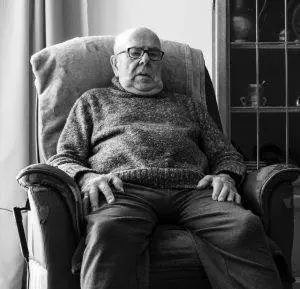
It can be difficult for a person who is beginning to show signs of Alzheimer’s disease to recognize it themselves; often, their loved ones will begin to notice changes in their behavior first. In addition to the more obvious forgetfulness and disorientation of dementia, people may notice more subtle changes in a person’s personality and behavior.
Symptoms of Alzheimer’s disease include:
-
Forgetting important things, like dates or appointments (more than just occasionally)
-
Having to ask the same question repeatedly because you can’t retain information
-
Trouble completing basic tasks that require following instructions
-
Losing track of where you are or what day or time it is, getting lost
-
Losing items, forgetting where you put something
-
Having trouble finding the right words or carrying on a conversation
-
Changes in vision or spatial perception
-
Changes in mood, emotions: anger, aggression, feeling suspicious towards others
-
Avoiding social situations
-
Progressively more difficult to walk, speak, or swallow
Signs of dementia in women can look different from signs of dementia in men. While it is often noted that people with dementia may become more irritable and take an attitude of blaming others for their forgetfulness, sometimes it may be the opposite. A person may seem more docile and easy-going. You might notice that a person is driving either more slowly and cautiously than they used to, or perhaps making more erratic decisions and moves. Having difficulty hearing when there is a lot of ambient noise, and losing one’s sense of smell can also be signs of Alzheimer’s and dementia.
The symptoms of Alzheimer’s disease tend to progress over time, while signs of Lewy Body dementia (LBD) can change more dramatically from day to day. A person with LBD may, for example, recognize their relatives sometimes, and be confused and unresponsive on other days. Having trouble walking, risk of falling, acting out dreams while sleeping, and having a blank facial expression can also be signs of LBD, although they can also be signs of another neurological disorder, such as Parkinson’s disease.
Medical Treatment for Alzheimer’s Disease
Drug treatment for Alzheimer’s disease may help a person maintain their cognitive abilities and memory longer, although it can be difficult to determine just how much a particular medication for dementia is helping, as the effects are limited and can be hard to quantify.
Cholinesterase inhibitors slow the breakdown of brain chemicals involved in memory and thinking, which can help some people with Alzheimer’s manage these symptoms for a while. For other people, these medications (such as Donepezil and Galantamine) may not help much, and they can also cause side effects like nausea, vomiting, and diarrhea. Cholinesterase inhibitors cannot be taken by people who also suffer from arrhythmia, or irregular heartbeat conditions. No medications available currently actually work to repair or reverse the damage to the brain caused by Alzheimer’s disease. Some studies, as noted below, have actually seen better results in patients receiving TCM treatments over conventional medication therapies for dementia and Alzheimer’s.
How Can Acupuncture Help Alzheimer’s Disease?
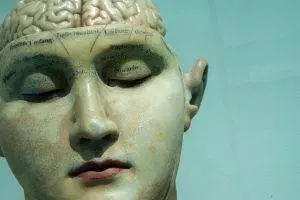
In TCM, we consider that many diseases are caused by a buildup of what we call “phlegm” in the organ systems of the body. The protein deposits in the brain referred to as “plaques” and “tangles” that seem to be the cause of dementia in older adults may be roughly analogous to the TCM concept of phlegm. Phlegm causes obstructions that block the free flow of Qi and blood through the body, causing breakdown in proper communication and cooperation between systems. There are records going back for hundreds of years of TCM herbal formulations being used to treat dementia by helping to get rid of pathogenic phlegm that blocks the meridians, or energy channels of the body.
According to TCM theory, the brain and the kidneys are closely related; the kidneys nourish the brain. If there is weakness or deficiency of Qi in the kidneys, it can lead to symptoms like dizziness, confusion, amnesia and memory problems. TCM treatment for dementia related to Alzheimer’s disease and Lewy Body dementia, will focus on strengthening the kidneys and clearing phlegm from the body.
Acupuncture treatment can have a positive effect on neurotransmitters and neurochemical activity, helping to alleviate a variety of neurological and mental health disorders. Current research is helping to show that stimulating specific pressure points can activate parts of the brain in a way that may reduce the cognitive and memory-related symptoms of dementia.
A study was done to determine if using the traditional “Four Gates” acupuncture points increased brain activity and improved cognitive function. The testing showed that patients who received acupuncture treatment in these points experienced significant changes in the cognitive-related parts of the brain versus patients who were given “sham” acupuncture.
A recent review of several studies showed that acupuncture treatment for Alzheimer’s can improve memory and cognitive function.
A review of 12 studies involving the use of acupuncture and TCM herbs to treat Alzheimer’s showed improvement in symptoms that was more effective than conventional drug treatment.
Acupuncture Near Me for Alzheimer’s in Santa Monica, West Los Angeles
It can be painful to watch a loved one struggling with dementia caused by Alzheimer’s or some other progressive neurological disease. It is best to initiate treatment for dementia as soon as it becomes apparent, so that we can help to limit the progress of cognitive decline. TCM provides a holistic way to treat each individual so that they can continue to live a full, active life. At Art of Wellness, we have over 30 years of experience helping patients with neurological conditions of all kinds.
*This article is for education from the perspective of Traditional Chinese Medicine only. The education provided by this article is not approved by FDA to diagnose, prevent, treat and cure human diseases. It should not stop you from consulting with your physician for your medical conditions. Traditional Chinese Medicine is based on Qi, which is an invisible force that usually cannot be observed by modern science. Because science focuses on testing ideas about the natural world with evidence obtained through observation, these aspects of acupuncture can’t be studied by science. Therefore acupuncture and Chinese herbs are often not supported by double-blind, randomized trials, and they are considered alternative medicine therapies in the United States.
How to Treat Seizures With Acupuncture and TCM
By Qineng Tan, L.Ac., Ph.D. & Xiaomei Cai, L.Ac., Ph.D.

Sudden loss of consciousness, convulsions or jerking body parts, staring, feelings of fear, anxiety, deja vu? These are all possible signs of seizure. Epilepsy is a chronic neurological disorder that causes different types of seizures. Research has shown that acupuncture and TCM treatment for epileptic seizures can be an effective adjunct to conventional treatment.
Epilepsy is a common disease of the central nervous system that can happen to people of all ages. Epilepsy is a term that can refer to a variety of different types of seizures; it defines a condition in which a person has recurrent seizures. Over 3 million people in the U.S. have been diagnosed with epilepsy; it is one of the most common neurological disorders worldwide.
What is the cause of seizures? Unusual electrical activity in brain cells can cause various types of seizures, depending on what area of the brain is affected. In some cases, people begin to have seizures due to a head injury, or a brain infection, such as meningitis. Some people seem to be born with an unusual brain structure that affects the area of the brain that causes seizures. In older people, symptoms of epilepsy may coexist with those of other neurological conditions, such as Alzheimer’s disease, or seizures may start occurring as an effect of having suffered a stroke or heart attack. Seizures can be caused by an allergic reaction to some food, as when a person with Celiac disease is exposed to gluten. Medical science has not yet discovered the exact meaning of seizures that occur in other cases, but it is thought to be due to genetics.
People with epilepsy need treatment to try to prevent or reduce seizures. While some seizures are mild, others can be severe, and even life-threatening. TCM has been using acupuncture treatment and herbs to help seizures for many, many years, and recent research is beginning to demonstrate how TCM as integrative care for epilepsy can be beneficial.
What Happens During a Seizure?
The signs of seizure can vary widely from person to person, but an individual’s specific pattern of what seizures look like will usually remain consistent.
Symptoms of seizure include:
- A range of changes in awareness: from staring and being unresponsive, up to totally losing consciousness
- Stiffening of the limbs, limbs twitching, or part of the body shaking
- Changes in vision: double vision, seeing flashes of light, staring, or blinking repeatedly
- Dizziness, sudden headache
- Sweating, nausea
- Having trouble breathing, or stop breathing
- Falling down for no apparent reason, sudden collapse, head nodding, muscles go limp, sometimes called “drop attacks”
- Loss of bladder or bowel control
- Feelings of anxiety, panic attack, fear
- Sense of having an “out of body” experience
- Strange taste in mouth or smelling strange smells
- Feelings of confusion
- Drooling or frothing at the mouth, biting tongue or inside of cheeks
- After the seizure, a person may feel exhausted, or have amnesia, trouble remembering what happened.
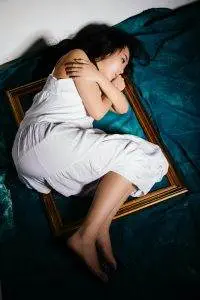
Historically, there have been many misconceptions about people who suffer from seizures, or “fits disease.” When a person is not having a seizure, they are usually otherwise healthy and capable. People with epilepsy are not necessarily limited in what they can do physically or mentally–except when they are having a seizure–,unless they have other chronic health problems in addition to epilepsy.
If you see someone having a seizure, DO stay near them and make sure they are safe. If they fall or seem to be unconscious, turn them onto their side and make sure they are breathing. DO NOT try to physically restrain a person who is having a seizure or attempt to put anything in their mouth. The idea that a person might swallow their tongue while having a seizure is a myth.
Top 10 Types of Seizures
There are many types of seizures. Sometimes a person has one one seizure caused by medication, drug withdrawal, illness, or some sort of trauma to the brain. A person may have a seizure due to an allergic reaction to some kind of medication or food. Experiencing one seizure does not mean a person is epileptic. Epilepsy is only diagnosed if a person has multiple seizures over time.
Seizures are divided into two main categories: focal onset or generalized onset. “Focal” refers to a seizure that originates from a localized part of one of the hemispheres of the brain. “Generalized” means that there is seizure-causing activity happening all over, or on both sides of the brain.
Specific types of seizure include:
- Focal Seizure with Retained Awareness – Or, “focal onset aware seizure.” Used to be known as a “simple partial seizure” or “partial seizures.” These are usually short in duration (less than 2 minutes) and a person remains conscious and aware while it is happening, although they may not be able to respond to people around them, or they seem “frozen.” The specific feelings vary widely: a sense of deja vu, sense of pressure or anxiety, a strange, overpowering smell, etc.
- Focal Onset Impaired Awareness seizure – also used to be called “complex partial seizures,” “temporal lobe seizures,” or “psychomotor seizures.” In this type of seizure, the person loses awareness of their surroundings. They may seem to be staring, zoning out, picking at their clothing, wandering aimlessly, smacking their lips, or making grunting sounds. These, too, are short in duration, and afterwards, the person may feel confused and very sleepy.
- Febrile seizures – these are seizures that are caused by having a fever over 100 degrees, usually as a result of having some type of infection, like a flu. Febrile seizure happens in young children; they may have shaking all over or jerking limbs, convulsions, or lose consciousness. Occasionally children may have febrile seizures in response to having a fever after receiving a vaccination. Febrile seizures do not cause brain damage or indicate a neurological disorder; they do not mean a person has epilepsy.
-

An absence seizure can last just a few seconds. Absence Seizure – used to be called “petit mal seizure.” This is a type of generalized onset seizure in which a person briefly loses awareness, or “blanks out” for just a matter of seconds. They are caused by abnormal brain activity, possibly related to hyperventilation. Absence seizures are more common in children, who may outgrow this disorder.
- Myoclonic Seizure – this is a very short kind of seizure that causes muscles to jerk or twitch for just a few seconds. “Myo” means muscle, and “clonus” means contraction and relaxation. These can happen to people with epilepsy, but myoclonic seizures can also happen to anyone. That feeling of being jerked awake and having a spasm in your legs when you are falling asleep is a kind of myoclonus.
- Tonic Clonic Seizure – this used to be known as “grand mal seizure.” This is the type of seizure that causes convulsions, stiff arms and legs, shaking all over, and other symptoms such as losing bladder control, crying out or making strange sounds, losing consciousness, and falling to the ground. A person who has experienced tonic clonic seizures before may notice an “aura” before the more severe symptoms of seizure begin; this might include a sense of vertigo, dizziness, nausea, feelings of anxiety, or strange smells or a weird taste in the mouth. Tonic clonic seizures may last a few minutes, and the person may be exhausted and emotional afterwards.
- Refractory Seizures or Uncontrolled Seizures – also called “drug-resistant” or “intractable” seizures, this is when a person has frequent and/or severe seizures that do not respond to medical therapy such as anti-epileptic medications.
- Lennox Gastaut Syndrome (LGS) – LGS is a rare form of epilepsy that shows up very early in life, usually when a child is still in infancy. Lennox Gastaut causes various kinds of seizures, both tonic (muscle spasms) and atonic (staring, still), or absence seizures. Children with LGS may experience multiple seizures per day, and have learning delays due to cognitive dysfunction.The cause of LGS is sometimes unknown, but it can be due to abnormal brain development, or a baby having some type of infection or loss of oxygen in utero, before they’re born.
- West Syndrome – also called “infantile spasms,” this is a type of epilepsy in young children that causes spasms and unusual movements for a baby, like throwing out of the arms, straightening the arms out to the sides, knees pulled up to the chest, the upper body bending forward, or head thrown back. West syndrome seizures only last a few seconds, and they usually go away by the time a child is past toddler years.
- Status epilepticus – This is a neurological emergency condition in which abnormal brain activity causes a prolonged seizure that lasts longer than five minutes, or multiple seizures that occur back-to-back without recovery in between. This can happen to a person who has epilepsy, or it can happen due to trauma, such as a head injury, or a hypertensive (high blood pressure) situation, or a severe reaction to drug toxicity, or an autoimmune disease response. There could be motor symptoms of shaking and collapsing, or the person could just be staring and unresponsive, depending on where the disordered activity is happening in the brain. Status epilepticus is a true medical emergency, and a person needs immediate attention to prevent brain damage.
Medical Treatment for Epileptic Seizures
Conventional treatment for seizures usually involves medications known as anticonvulsants (anticonvulsive), or anti-seizure medications. First, it is necessary for doctors to accurately diagnose the problem: what type of seizures is a person having, and what is causing them? Some drugs help to stop seizures from happening in the short term. Tranquilizers like Valium (Diazepam), Ativan (Lorazepam), and Klonopin may help to stop a seizure while it is happening, but people build up a tolerance quickly to these medications and then have to take higher doses to get the same effect. Other medications, like Aptiom, are taken daily to prevent seizures. There are many other medications used to treat different types of epilepsy, but these medications only work to control seizures in some cases. Other people may struggle to find a medication they can tolerate. Anticonvulsants and other anti-epileptic drugs can cause side effects like weakness, dizziness, headaches, nausea or vomiting, and skin rash.
People who experience seizures do need treatment to control epileptic symptoms, but it can be challenging to find the right combination of therapies. Acupuncture and TCM treatment offer an alternative treatment that may help to control seizures without negative side effects.
Can Acupuncture Help Epilepsy Symptoms?

TCM has a long history–over 2000 years–of helping people who have epileptic seizures. The first documentation of acupuncture treatment for seizures by TCM practitioners was written at least 200 years B.C.. Specific Chinese herbs to treat epilepsy have been used for many centuries, and are now being studied through scientific research to prove their efficacy. Several studies have shown that various herbal formulations help to reduce the frequency of seizures.
Data also show that acupuncture treatment can help alleviate symptoms of epilepsy, reducing the occurrence of seizures through its positive effect on neurotransmitters in the brain.
According to TCM theory, epilepsy usually arises due to problems with the Liver system. Too much Wind affecting the Liver can cause spasms or convulsions. Liver Yang Rising can lead to muscle twitching and/or dizziness. An acupuncturist will use a combination of modalities such as acupuncture treatment, electro-acupuncture, Chinese herbs, and therapeutic massage to help seizures.
As with so many health conditions, inflammation plays a role in epileptic seizures. Auricular acupuncture (ear acupuncture) and electro-acupuncture (electro-stim) may have an anti-inflammatory effect on the brain that helps to reduce the frequency of seizures.
TCM theory posits that stimulation of specific acupressure points (such as “Shenmen” points on head or ear) for epilepsy can help to calm the mind and produce a positive effect on the parasympathetic nervous system.
A recent study compared patients who received the standard medication therapy for epilepsy with those who had acupuncture treatments for 12 weeks in addition to drug therapy. At a one year follow up, the patients who had received acupuncture for seizures had a statistically significant improvement of their epilepsy symptoms compared with patients who had received only the conventional medical treatment.
Acupuncture Near Me for Epileptic Seizures Los Angeles Area
It is challenging to manage seizures, but it is possible for people with epilepsy to live a long and healthy life with minimal disruptions. Living with a chronic and unpredictable health condition like epileptic seizures can cause emotional suffering in addition to physical symptoms. The holistic approach provided by TCM and acupuncture treatment can be considered as a safe form of complementary alternative medicine for epilepsy.
*This article is for education from the perspective of Traditional Chinese Medicine only. The education provided by this article is not approved by FDA to diagnose, prevent, treat and cure human diseases. It should not stop you from consulting with your physician for your medical conditions. Traditional Chinese Medicine is based on Qi, which is an invisible force that usually cannot be observed by modern science. Because science focuses on testing ideas about the natural world with evidence obtained through observation, these aspects of acupuncture can’t be studied by science. Therefore acupuncture and Chinese herbs are often not supported by double-blind, randomized trials, and they are considered alternative medicine therapies in the United States.
